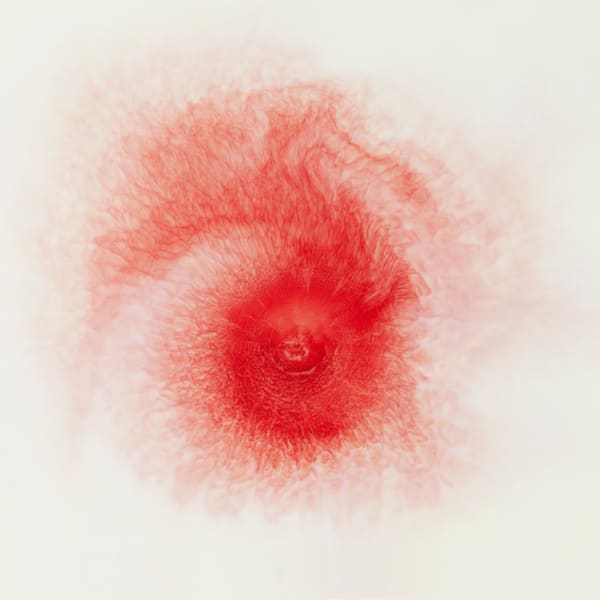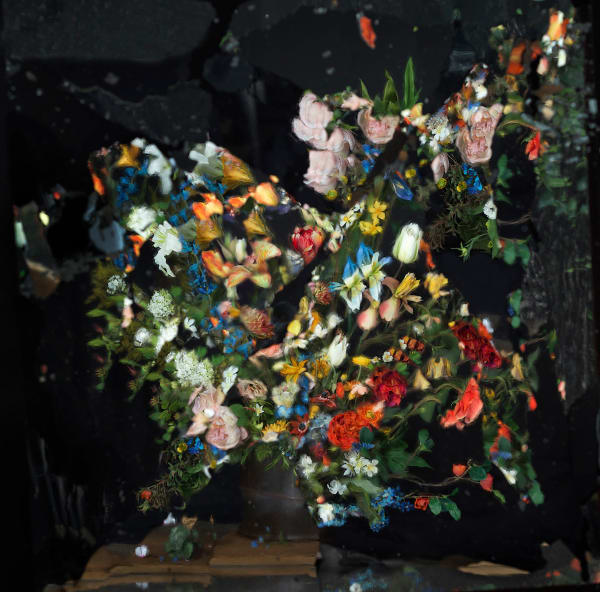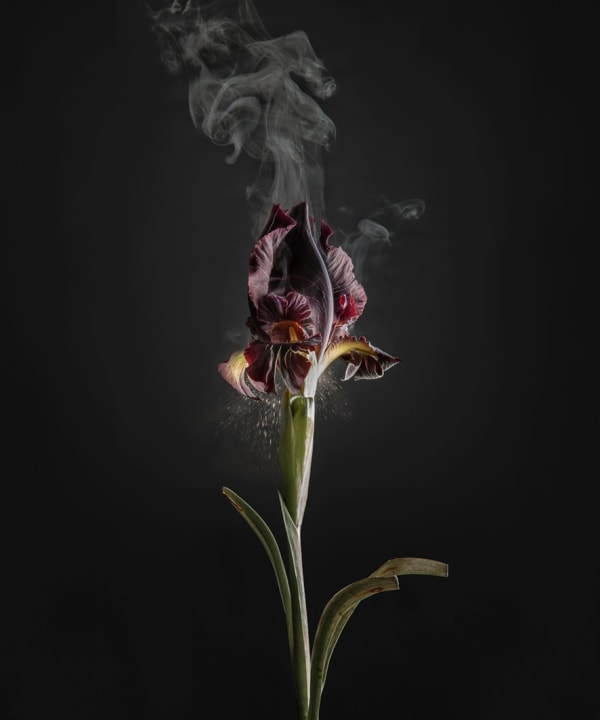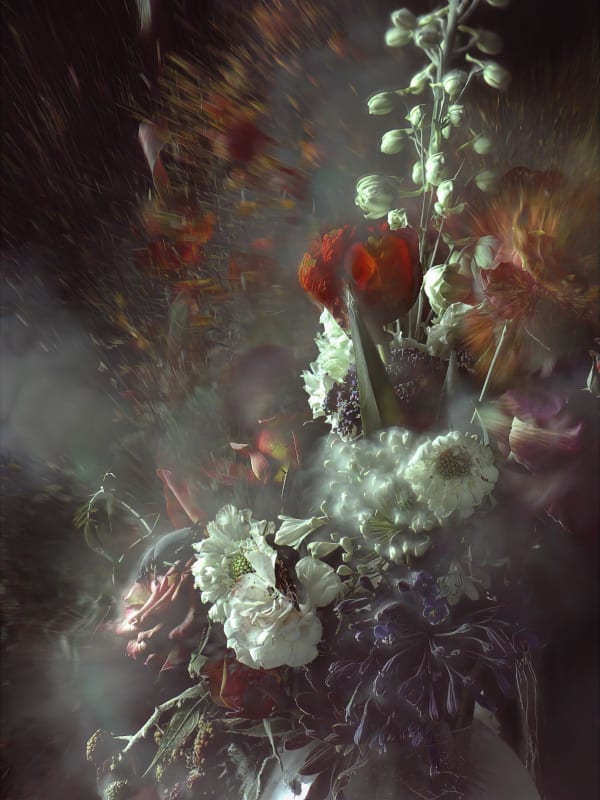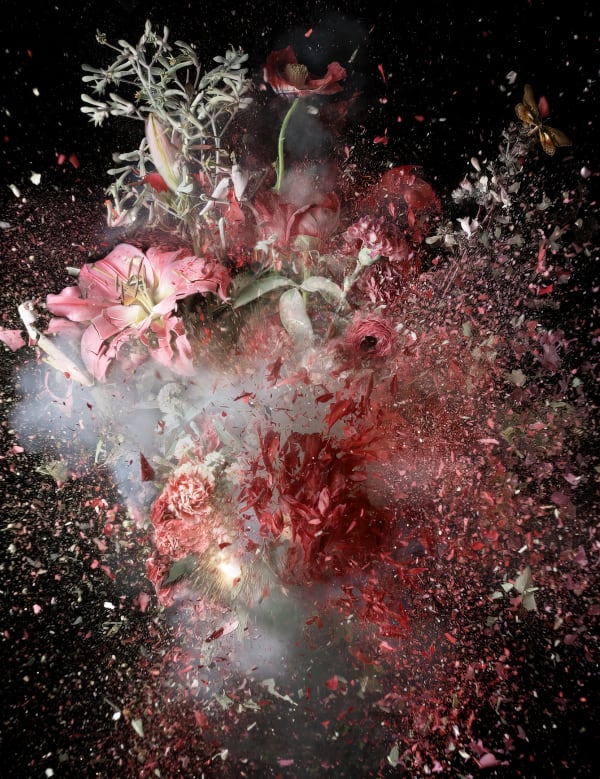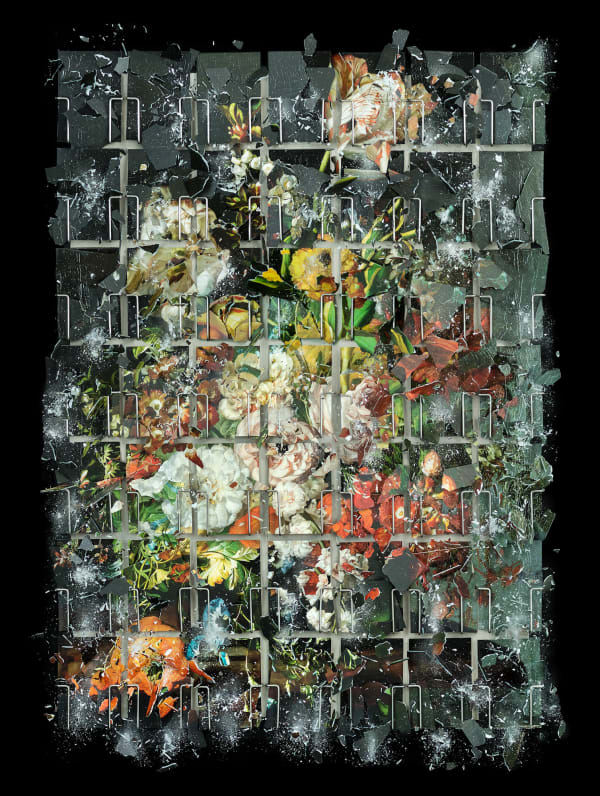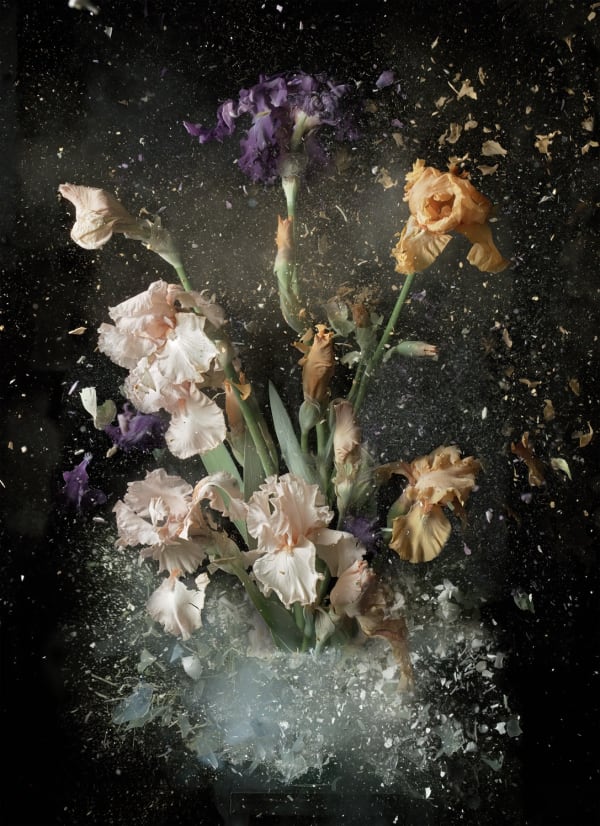Ori Gersht: The Unreality of Time
-
 Ori Gersht, Elephant 2, 2004
Ori Gersht, Elephant 2, 2004 -
 Ori Gersht, Love Me, Love Me Not 08, 2013
Ori Gersht, Love Me, Love Me Not 08, 2013 -
 Ori Gersht, Virtual E03, 2014
Ori Gersht, Virtual E03, 2014 -
 Ori Gersht, Iris Atropurpurea D03, 2018
Ori Gersht, Iris Atropurpurea D03, 2018 -
 Ori Gersht, New Orders 01, Untitled 03, 2018
Ori Gersht, New Orders 01, Untitled 03, 2018 -
 Ori Gersht, Fusing Time 04, 2022
Ori Gersht, Fusing Time 04, 2022 -
 Ori Gersht, Fields and Vision 3, 2022
Ori Gersht, Fields and Vision 3, 2022 -
 Ori Gersht, Becoming, Dutch Flower 02, 2021
Ori Gersht, Becoming, Dutch Flower 02, 2021 -

-

London
W11 4LQ
Michael Hoppen is delighted to announce our first solo exhibition with Ori Gersht.
For over twenty-five years, Gersht has been exploring the relationships between history, memory and landscape using the language of photography. Often this has meant adopting a poetic, even metaphorical approach to examine the difficulties of visually representing conflict and violent events or histories. Gersht’s work has the ability to transform a seemingly mundane experience to something ethereal and magical.
The Unreality of Time explores Gersht’s innovative use of photography and technology through several bodies of work dedicated to botanical studies. Referencing art history, Gersht's imagery is uncannily beautiful; the viewer is visually seduced by the often violent intervention of an explosion, caught on camera in fractions of seconds. These events are then processed, or rather, re-imagined as incidents in time. To approach this challenge Gersht is often adopting cutting edge technologies which allow him to push the boundaries of photography, questioning its relationship with our notion of reality and claim for truth.
Amongst work spanning from 2004 to 2022, ‘Elephant 2’ stems from a series in which Gersht searches for deserted grounds at the edges of cultivated gardens. “My intention is to explore the amalgamation of culture with nature; the failure to overcome nature expresses a state of mind as much as physical space”. The image was made during the short blossom season and the long, intentional over-exposure “invited the light to violate and fragment the film”.
It is the motif of fragmenting that has been a constant throughout Gersht’s career. ‘Becoming’, 2021, explores the relationship between creation and disorder through the canonical structure imposed by museums upon their collections. Images of paintings drawn from the postcard collections of the Metropolitan Museum of Art, New York, The Getty Museum, Los Angeles, and the Rijksmuseum, Amsterdam are printed onto analogously sized sheets of glass and then carefully arranged on a specially constructed wall that mimics a traditional postcard display. Order cedes to chaos as each wall of glass is methodically shattered. Recorded by the camera at the instant of destruction, a new space of creation emerges. In this photographic space, Gersht visualises the entropic forces that these institutional systems resist as the images shatter into dispersed fragments of collective memory, perhaps returning to the state of disorder from which they originated.
Curated in collaboration with Ori Gersht, this inaugural exhibition at 10 Portland Road will bring together a group of works which all seek to explore nature, science, technology and identity.
Gersht's work has been exhibited and collected by major institutions including the Museum of Fine Art Boston, Boston, the Hirshhorn Museum and Sculpture Garden, Washington, The Photographers Gallery, London, The National Gallery, London, the J. Paul Getty Museum, Los Angeles, and the Victoria & Albert Museum, London.

